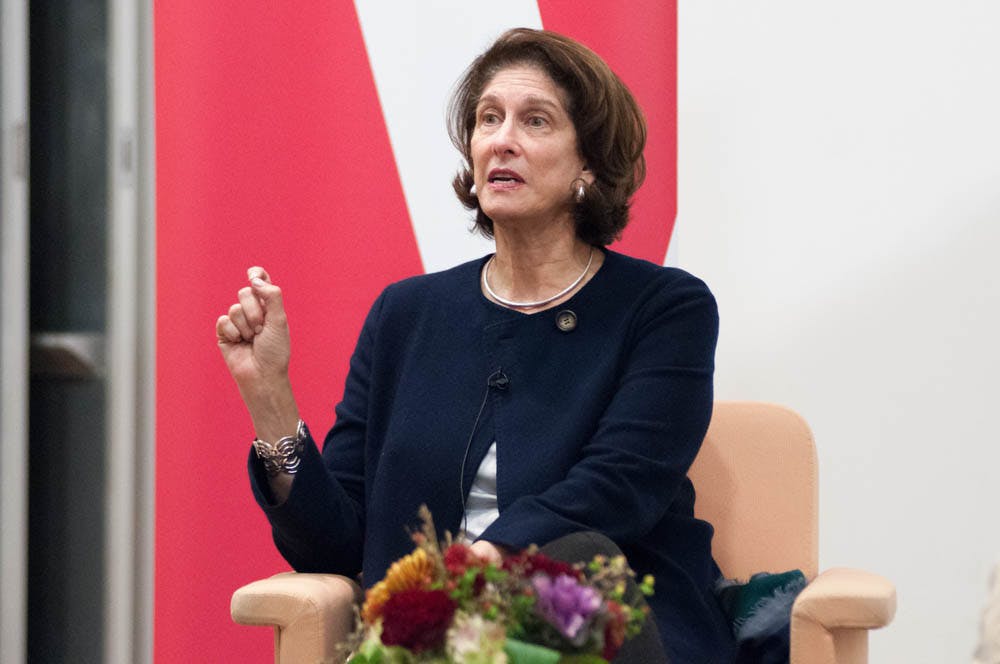Mara Liasson ’77, national political correspondent for National Public Radio, and David Corn ’81, Washington bureau chief at Mother Jones, reflected on the mistakes of Hillary Clinton’s presidential campaign and gaps in the media’s understanding of the 2016 election cycle Nov. 21 in List Art Center.
The event was hosted by the Watson Institute for International and Public Affairs as the third and final part of its “Election 2016: Behind the Scenes” series.
Liasson characterized the unexpected Trump victory as primarily “a failure of imagination.” Corn and Liasson faulted both the media and Clinton’s campaign for failing to comprehend the power of President-Elect Donald Trump’s anger and celebrity.
“You can change the rules if you have no shame,” Liasson said in reference to Trump, citing this as the lesson of Trump’s ability to escape serious fallout from numerous controversies that many expected would sink his campaign.
Corn and Liasson agreed Clinton failed to gather her individual programs and policies into a message that could speak to everyone. “She had the lyrics; she didn’t have the music,” Liasson said.
Trump “understood that there was tremendous resentment,” and his rhetoric against political correctness played into animosity toward elites, Liasson said. “The phrase ‘PC’ is just a proxy for ‘elites who look down on us,’” she added.
Corn addressed Clinton’s inability to secure the support of rural voters, which led to her loss in the electoral college despite winning the popular vote.
“The point can’t be emphasized enough that a majority of those who voted shared Hillary Clinton’s view of the world — that America is an inclusive communal society where people should work together to advance,” Corn said. “And yet (Trump’s) side will be gaining power because of the way his votes were distributed geographically,” he added.
Corn stressed that Clinton failed to address the more traditional economic concerns of many Democratic voters. While social issues are paramount to some, the Democratic Party must address economic questions if it wishes to succeed, he said.
A Trump presidency means that “we are now in a debate about first principles and democratic values,” Liasson said. “We’re going to find out whether our democratic institutions are strong enough and resilient enough to resist what seems to be his authoritarian policies.”
“There should be wide-ranging conversations about what’s going on in America, especially with those who you disagree with,” Corn said. “There are some people you can’t make common cause with. There are people who are racists, and there are people who are bigots, but politics is about addition, not subtraction.” He encouraged students at Brown and other institutions to engage in discourse inclusive of different views.





